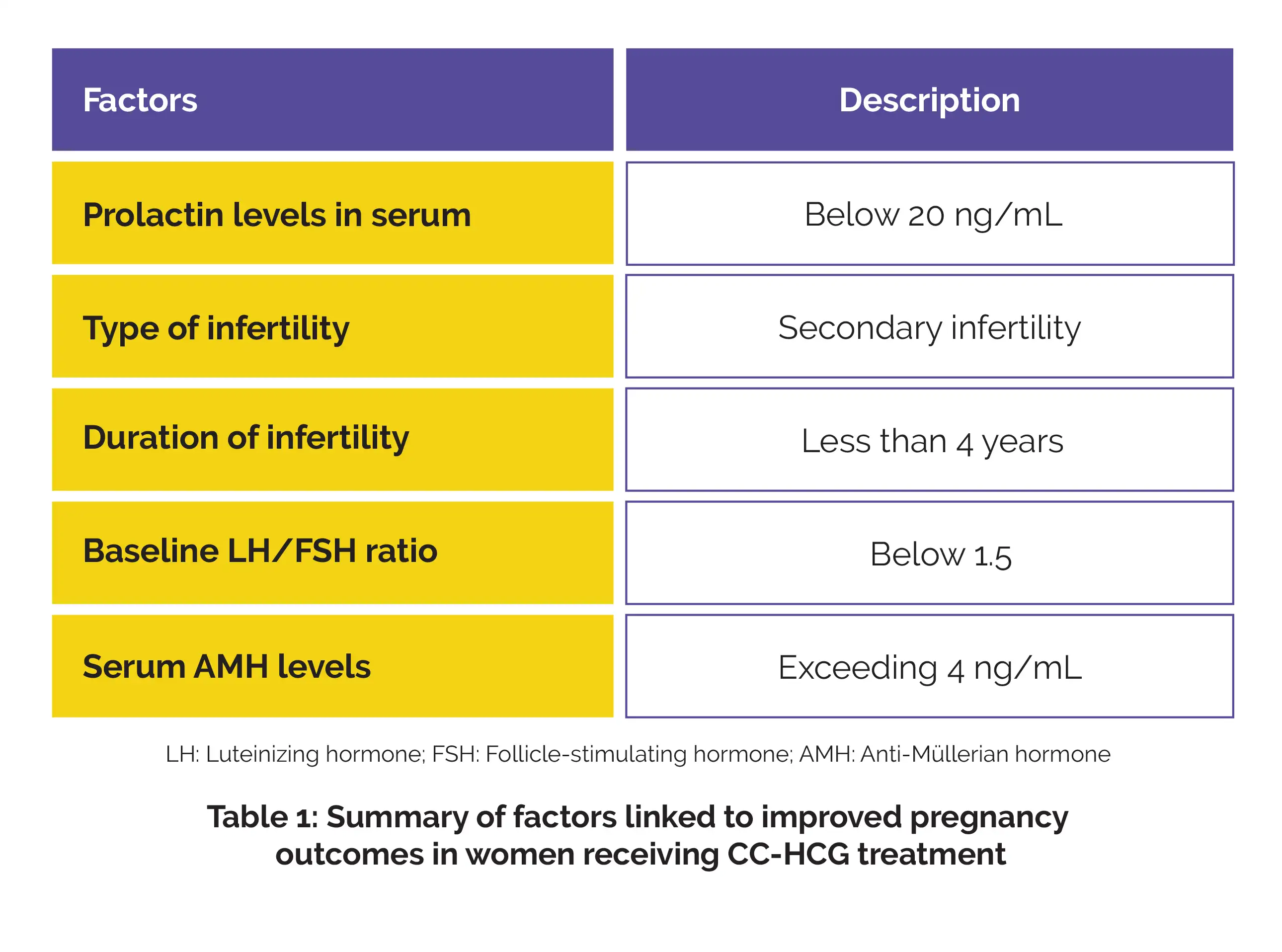Categories
Change Password!
Reset Password!


Combination of HCG and clomiphene citrate presents as a promising, cost-effective PCOS therapy, enhancing fertility outcomes while minimizing risks and bringing renewed hope to women facing infertility challenges.
A low dose of human chorionic gonadotropin (HCG) with clomiphene citrate (CC) proved to be promising in improving fertility outcomes for women with CC-resistant ovulatory dysfunction. It has been shown to decrease cycle cancellations while boosting clinical pregnancy and ovulation rates, as stated by a study published in Medicina (Kaunas) Journal.
PCOS is a prevalent endocrine disease affecting 5–18% of women of reproductive age. Mahmoud Thabet et al. aimed to evaluate the effectiveness of HCG (given at a low dose) along with CC for encouraging ovulation in 300 women suffering from infertility diagnosed with CC-resistant PCOS. They were divided into two groups:
In the final analysis, the data from 138 women in the combination group and 131 in the placebo group were considered. Study outcomes demonstrated a considerably lower rate of cancellation in the CC-HCG group compared to the other group. Additionally, there was a marked increase in the number of ovarian follicles exceeding 18 mm, as well as improved endometrial thickness and ovulation rates.
Women in the CC-HCG group had notably higher clinical pregnancy rates (7.2%) compared to just 2.3% in the other group. Certain factors associated with a greater likelihood of achieving pregnancy in the CC-HCG group (following modification for body mass index and age) are mentioned in the following Table 1:

In contrast, the CC-Placebo group showed better predictions of gestation for those having primary infertility, serum AMH below 4 ng/mL, serum prolactin levels at or below 20 ng/mL, starting LH/FSH ratios under 1.5, and period of infertility of less than 4 years.
Medicina (Kaunas)
Competence of Combined Low Dose of Human Chorionic Gonadotropin (HCG) and Clomiphene Citrate (CC) Versus Continued CC during Ovulation Induction in Women with CC-Resistant Polycystic Ovarian Syndrome: A Randomized Controlled Trial
Mahmoud Thabet et al.
Comments (0)